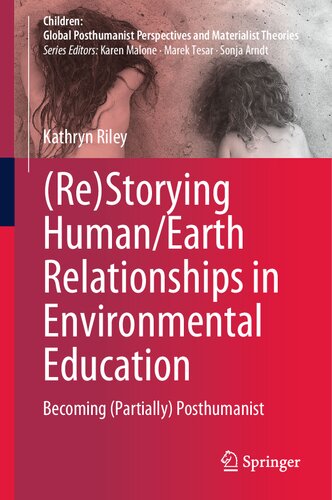

Most ebook files are in PDF format, so you can easily read them using various software such as Foxit Reader or directly on the Google Chrome browser.
Some ebook files are released by publishers in other formats such as .awz, .mobi, .epub, .fb2, etc. You may need to install specific software to read these formats on mobile/PC, such as Calibre.
Please read the tutorial at this link: https://ebookbell.com/faq
We offer FREE conversion to the popular formats you request; however, this may take some time. Therefore, right after payment, please email us, and we will try to provide the service as quickly as possible.
For some exceptional file formats or broken links (if any), please refrain from opening any disputes. Instead, email us first, and we will try to assist within a maximum of 6 hours.
EbookBell Team

0.0
0 reviewsThis book is situated in the simultaneous thinking (theory) and doing (action) of posthumanist performativity and new materialist methodologies to bring forth a multitude of stories that demonstrate co-constituted and co-implicated worldmaking practices.
It is written in response to the fact that our Earth is at a critical juncture. As atmospheric temperatures rise and cast unprecedented and wide-spread social and ecological crises across the planet, social and ecological injustices and threats cannot be separated from globalising, neoliberal, capitalist, and colonial discourses that proliferate through anthropocentric and humancentric logics. Manifesting in binary classifications that position the human as separate from the Earth, and dominant categories of the human in hierarchies of power, such logics homogenise and institutionalise the field of environmental education and result in an over-emphasis on instrumentalist, technicist, and mechanistic teaching and learning practices.
Exploring the affects emerging within, and between, an assemblage comprising Researcher/Teacher/Environmental Education Worldings, this book seeks to understand how the researcher makes sense of herself with/in the broader ecologies of the world; collaborative processes with an elementary-school teacher in Saskatchewan, Canada, as actualised through four co-created and co-implemented multisensory researcher/teacher enactments (Mindful Walking, Mapping Worlds, Eco-art Installation, and Photographic Encounters); and how the researcher/teacher organises themselves with Land-based pedagogies, environmental education curriculum policy, and wider discourses of Western education. This book does not propose a better way of teaching and learning in environmental education. Rather, showing how difference between categories is relationally bound, this book offers a conceptual (re)storying of human/Earth relationships in environmental education for social and ecological justice in these times of the Anthropocene.